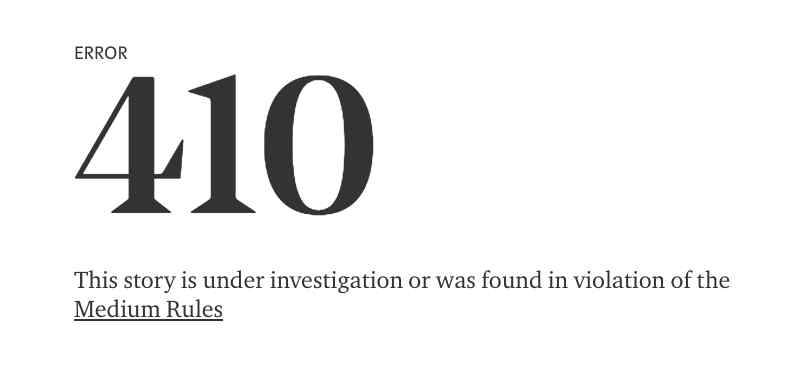Nestlé has bragged it’s the first major food and beverage company to announce a blockchain pilot that will allow consumers to track product sustainability and provenance.

The company’s DLT program will start by tracing milk from producers in New Zealand to Nestlé’s factories and warehouses in the Middle East. Nestlé expects to add palm oil sourced in the Americas at a later date.
“We believe it is another important step towards the full disclosure of our supply chains announced by Nestlé in February this year, raising the bar for transparency and responsible production globally,” said a Nestlé representative in a press release .
Unlike its previous pilots, Nestlé won’t be using IBM‘s blockchain tool IBM Food Trust . Instead, it will use blockchain platform OpenSC , developed by World Wildlife Fund (WWF) Australia and The Boston Consulting Group Digital Ventures.
Nestlé says these pilots will allow it to understand how effectively OpenSC can scale.
Hard Fork has reached out to Nestlé to learn more about its decision to use OpenSC over IBM Food Trust, and will update this piece should we receive a reply.
Mapping supply routes has certainly evolved to be one of blockchain‘s most prevalent use-cases.
European supermarket chains Auchan , Albert Heijn , and Carrefour have each shipped produce in packaging that features blockchain-enabled QR codes — the latter having already declared intention to put 20 percent of its products “on the blockchain” by 2020.
Update 18:01 UTC, July 2: A Nestlé spokesperson has since contacted Hard Fork to say Nestlé considers IBM a “valued partner in this blockchain exploration,” and that the two companies will continue to work together.
They also confirmed Nestlé’s pilot program that uses IBM Food Trust is still ongoing.
“This new partnership will be complementing our ongoing work for a slightly different application,” said the spokesperson via email. “Through open blockchain technology, we would like to go further in our full transparency journey.”
“Consumers will be able to access key sustainability data related to Nestlé supply chains. Anyone can verify traceability and sustainability claims independently. The access to this information will also be much easier as everything they need to know about the key ingredients will be in one place,” they added.
Florida city that paid $500,000 Bitcoin ransom, fires IT director
Lake City, the Florida city that paid a $500,000 Bitcoin ransom last week, has fired an employee following the debacle.

In an interview with local television , the city manager of Lake City, Joe Helfenberg, said the city’s director of information technology has been fired. Another local news outlet, WCJB , named the employee as Brian Hawkins.
Last week, Lake City gave approval to its insurance company to pay the 42 Bitcoin ransom. The city itself paid a $10,000 excess using taxpayer funds.
The city’s motivations for firing the employee aren’t entirely clear. However, the city’s mayor did say that the decision was taken by Helfenberg to revamp the “whole IT department,” to help it overcome the recent setback and ensure that it doesn’t happen again.
Officials from the city say that decryption is underway and its computer systems should be back online in the next two weeks.
At the time , officials claimed that paying the hackers was the best way to regain access to the city’s computer systems.
They may have a point. Earlier this year, Baltimore City was also hit by a ransomware attack in which hackers demanded payment in Bitcoin. The city refused to pay , so hackers began leaking sensitive government documents on Twitter.
It’s estimated the Baltimore City attack cost the city around $18 million , while the hacker’s ransom was much lower.
Lake City is the second Florida to pay a ransomware attack in recent weeks after Riviera Beach paid a $600,000 Bitcoin ransom to scammers.
The sad and peculiar case of Satowallet’s alleged $1M cryptocurrency exit scam
Nigerian cryptocurrency startup Satowallet has exit-scammed, making off with $1 million of its users’ money, reports International Business Times .

According to company CEO Samuel Ben, however, the firm isn’t responsible for those losses. Instead, he says Telegram scammers tricked users into handing over access to their funds during an extended maintenance period.
Ben also claimed the pesky scammers returned to steal more funds when Satowallet attempted to establish Know-Your-Customer policies earlier this year.
Eventually, he firmly passed the buck to its hosting provider OVH, publishing rather peculiar claims in a blog . Unfortunately for Ben, Satowallet’s Medium page has been suspended, pending investigation, presumably for suspicious behavior.


A cached version of the post haphazardly reads: “We also accused OVH of fraud and trying to steal our wallet servers from us. We reached out to OVH team [sic] again and got a heart breaking news and without any explanations after we accused the of stealing users funds from our server with them [sic].”
It continues: “At this point they stopped replying our messages and refused to give any further explanations. This was the point that i [sic] had to make a tweet to users that we are having issues that is beyond our control as we could do nothing as developments as it seems like we have been scammed by the server company OVH.”
Ben then claimed that lawsuits will be filed against OVH on behalf of Satowallet, and that 70 percent of his staff had resigned as a result of the situation.
“ It [sic] hard for me to even believe what happened, therefore i [sic] decided to seek merger while our lawyers are working to track down OVH team as they were not responding on any social media or contact,” added Ben.
Wait, why does a hosting service control user cryptocurrency?
Affected users have been quick to call bullshit on the story via Twitter, pointing out that hosting providers shouldn’t have access to the private keys of users, so the cryptocurrency should be recoverable if Satowallet was a legitimate operation.
Hard Fork has reached out to Satowallet’s hosting provider and will update this piece should we receive a reply.
Cryptocurrency exit scams are frustratingly common. You can read up on how to spot one here , and also discover some of the more ludicrous plots of the past, here .











